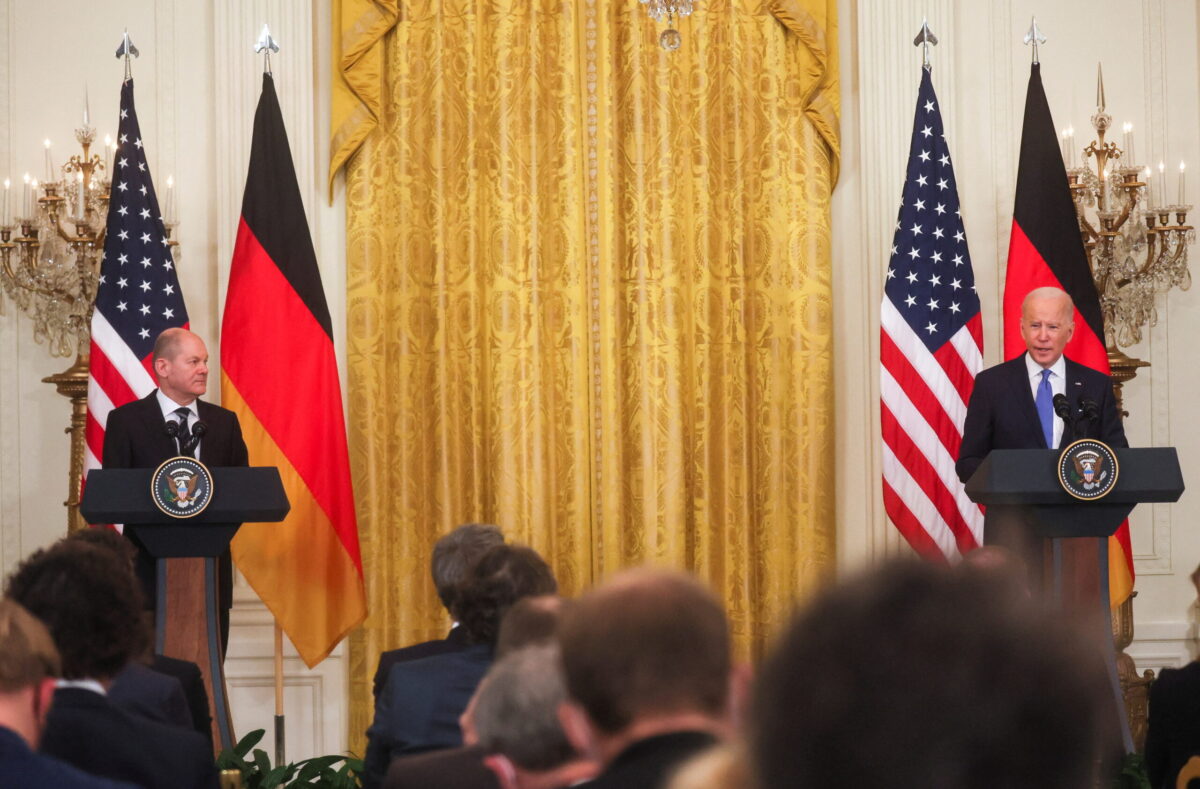In the fourth brief in our Germany and Baltic Security series, we turn our attention to the meaning of Germany’s bilateral relationships. Here, Marko Mihkelson examines the German-US relationship.
The health of this relationship is vital for Baltic security, but it has sometimes been turbulent. Berlin’s refusal to support Washington’s invasion of Iraq caused a deep and long-lasting fracture. More recently, their relations have been troubled by Donald Trump’s attacks on Germany, especially over defence spending and the trade imbalance, and by energy politics. To the surprise and disappointment of the Baltic states, President Biden, looking to restore US-German relations, cancelled the Trump administration sanctions that had prevented the completion of the Nord Stream 2 pipeline.
With Russia again threatening Ukraine, what to do with Nord Stream 2 is now a question for Germany’s new chancellor. Meanwhile, there is little to suggest that Berlin will meet Washington’s expectations for improving defence spending any time soon and diverging US and German policies towards China present fresh challenges to their relationship. It Is vital that Germany recognises, when it deals bilaterally with the US, that it is unavoidably acting as a representative of its European allies too.
Download and read: Brief No.4. German-US Relations and the Security of the Baltic States (PDF)


